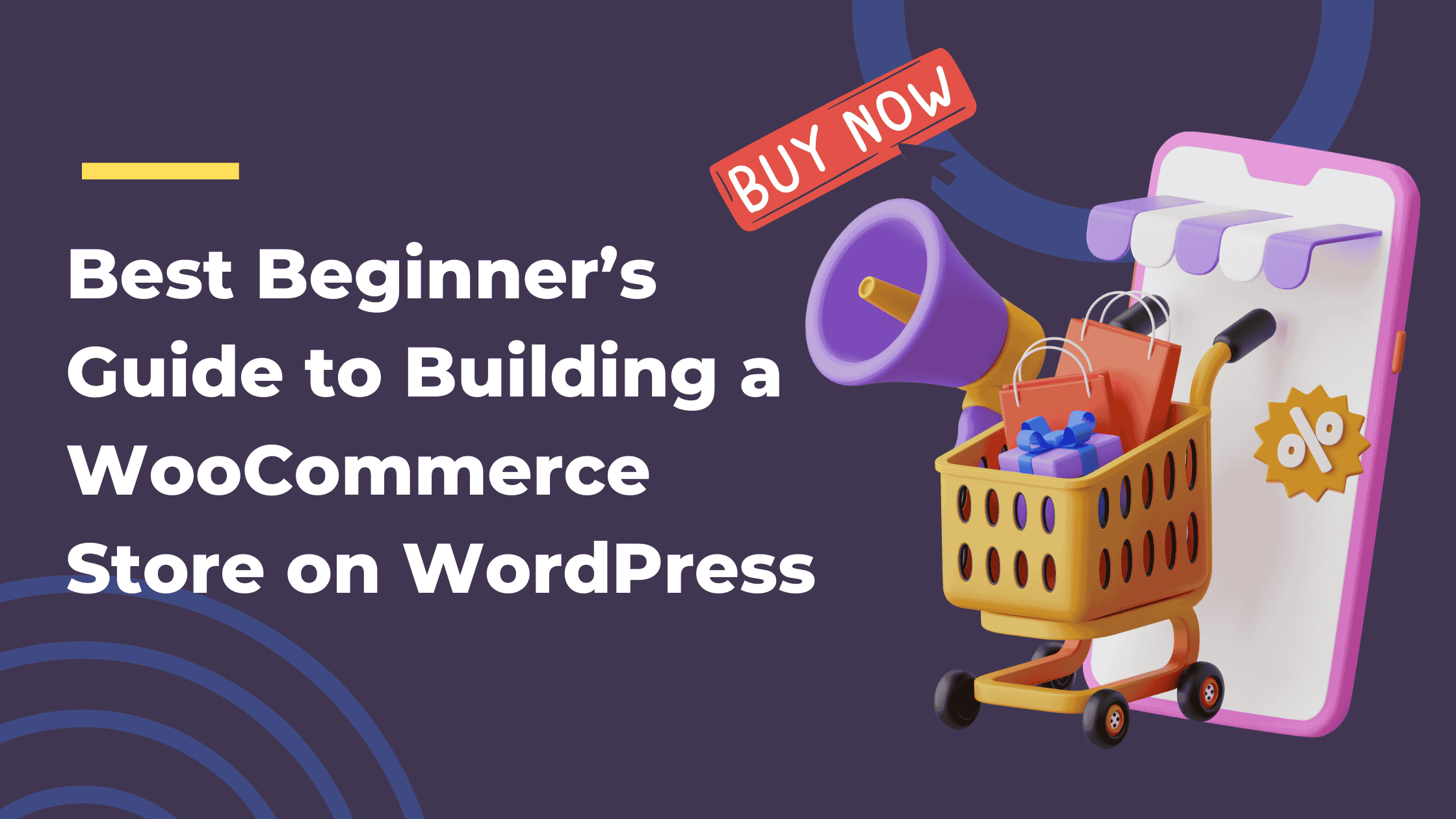As the most popular eCommerce plugin for WordPress, WooCommerce is easy to use and flexible, so setting up an online store isn’t a daunting task. Whether you’re selling physical products, digital downloads, or services, WooCommerce has all the tools you need. In this beginner’s guide, we’ll walk you through the create-ecommerce-store-on-wordpress-woo-commerce.

Table of Contents
ToggleWhy Choose WooCommerce for Your Store?
WooCommerce is preferred by over 6 million websites for its user-friendliness, customization options, and cost-effectiveness. With WooCommerce, you can:
- Selling physical and digital products.
- Accepts major cards, PayPal, and other payment methods.
- Add unlimited items and photos.
- Offer many shipping methods.
Step-by-Step Guide to Building a WooCommerce Store
Step 1: Set Up Your WordPress Website
Before you set up WooCommerce, you’ll need to get your WordPress website up and running. If you haven’t already, follow these steps:
- Buy Hosting: Choose a reliable hosting provider that supports WordPress (like Bluehost, SiteGround, or Hostinger). Choose a plan that has WooCommerce optimised hosting.
- Install WordPress: Most hosting providers offer one-click access to WordPress.
- Choose a Domain Name: Choose a name that reflects your brand and is easy to remember.
Step 2: Install and Activate WooCommerce
- Log in to your WordPress dashboard, go to Plugins and click Add.
- Search for “WooCommerce” in the search bar.
- Click to install now, then click to launch.
Initially, WooCommerce will take you through a setup wizard where you can:
- Enter Your Store Details: The location, currency and type of product you want to sell.
- Configure Payment Methods: Choose from multiple gateways like Stripe or PayPal.
- Set Up Shipping Options: Specify whether you have free shipping, flat rate, or instant shipping.
Step 3: Select a WooCommerce-Compatible Theme
The design of your website plays a big role in user experience. Choose a theme that is compatible with WooCommerce to make sure everything is connected. Some popular themes include:
- Storefront (Free): Built on WooCommerce itself, it is lightweight and fully customizable.
- Astra (Free and Paid): Known for its speed and simplicity, Astra works well with WooCommerce.
- Flatsome (Paid): Ideal for pages that show interesting things.
Once you choose a theme, use the theme customizer to customize it to suit your target colors and style.
Step 4: Add Products to Your Store
Adding products to WooCommerce is simple:
- Go to Products > Add New.
- Enter your product name, description, price, and images.
- For physical products, specify the inventory details, shipping weight, and dimensions.
- For digital products, check the “Virtual” and “Downloadable” options.
Make sure to include:
- High-Quality Images: Clear, high-resolution product images will increase conversion rates.
- SEO Optimizing Descriptions: Use keywords and make your descriptions clear and concise.
Step 5: Configure Essential Plugins
Enhance your WooCommerce store with additional plugins for more functionality. Some of the must-have plugins include:
- Yoast SEO: Help optimize product pages and blog posts for search engines.
- WP Rocket: Build a fast and efficient website.
- TrustPulse: Social proof that increases conversion.
Step 6: Set Up Payment and Shipping Methods
To complete the process, you’ll need to set up a payment gateway. Go to WooCommerce > Settings > Payment and select the gateway you want to provide (such as Stripe, PayPal, direct to bank).
Here, you can set the shipping area and route. Offer options like free shipping or instant shipping from carriers like UPS or FedEx.
Step 7: Test Your Store
Test your store by placing an order before posting. This will ensure your checkout process goes smoothly. You can use a live environment or a paid conference to test without interrupting live business.
Step 8: Launch Your Store
Once everything is set up and tested, it’s time to launch! Promote your new store using:
- SEO: Use keywords to optimize your product pages and blog posts for search engines.
- Social Media:Share your products on social media like Instagram, Facebook, and Pinterest.
- Email Marketing: Build email lists and send targeted messages.
Conclusion: create-ecommerce-store-on-wordpress-woo-commerce
Setting up a WooCommerce store on WordPress is an easy process, especially if you follow the steps outlined in this guide. With the right hosting, themes, and plugins, you can create an eCommerce site that meets your needs. Your WooCommerce store will be complete.
References
Recent Blogs:



